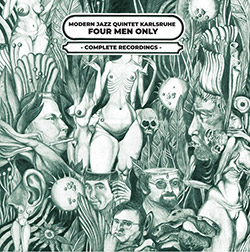
From 1968-73 the German Modern Jazz Quintet Karlsruhe of Herbert Joos on flugelhorn, Wilfried Eichhorn on sax & winds, Helmuth Zimmer on piano & percussion, Klaus Bühler on double bass, Rudi Theilmann on drums, and Wolfgang Czelusta on trombone, and then Four Men Only after Bühler left, were a force in the European Free Jazz scene, here in a 3-CD box collecting their works.
Out of Stock
Quantity in Basket: None
Log In to use our Wish List
Shipping Weight: 14.00 units
Sample The Album:
Herbert Joos-flugelhorn, mellophone, piston, percussion
Wilfried Eichhorn-tenor saxophone, soprano saxophone, flute, percussion
Helmuth Zimmer-piano, percussion
Klaus Buhler-double bass, percussion
Rudi Theilmann-drums, percussion
Wolfgang Czelusta-trombone
Click an artist name above to see in-stock items for that artist.
Label: NoBusiness
Catalog ID: NBCD 129-131
Squidco Product Code: 29514
Format: 3CD + BOOKLET BOX SET
Condition: New
Released: 2020
Country: Lithuania
Packaging: Box Set - 3 CDs + Booklet
Recorded at the Tonstudio Bauer, Ludwigsburg, Germany, on May 10th, 1968, April 24th, 1970, May 6, 1972, December 26th - 29th, 1973; in concert in Funkhaus Hannover, in Hannover, Germany, on October 30th, 1971, by B. Sanders, Carlos Albrecht, 3-4), Martin Wieland.
"Jazz trumpeter and flugelhorn player Herbert Joos was one of the most celebrated musicians in Germany's avant-garde scene. From 1968 to 1973, he was a member of the Modern Jazz Quintet Karlsruhe and Four Men Only, two free jazz bands with intense, heavy-hitting musicianship. Complete Recordings collects the full work of both units, presenting it in a massive three-hour box set. The music is stunning, all stampeding drums, squealing brass, and dark piano chords. Songs like "Lonely Time," "The Devil Is Green, Blue, Yellow" and "The Sun Is Coming Over" sound especially gripping, each track shifting and changing form as the arrangements unfold. Then there's "Position 2000," the title track of the Karlsruhe quintet's 1970 album. After the song rumbles for a bit, thanks to Rudi Theilmann's hypnotic drum roll, the horn section arises with an almost regal tone. Then the remaining players chime in, locking into a turbulent groove teetering on the verge of collapse. Like much of the compilation, the scoring never falters: every song is a thrilling high-wire act with unforeseen twists and turns. All that to say this: Complete Recordings is incredible, and I can't stop playing it."-Marcus J. Moore - Bandcamp
"The European and especially the German jazz scene at the end of the 1960s was extremely creative. Everybody who's interested in this music knows Peter Brötzmann, Peter Kowald, Alexander von Schlippenbach and Albert Mangelsdorff. However, there were exquisite bands whose names are known only to absolute experts and who have otherwise been almost completely forgotten. One of these bands is the Modern Jazz Quintet Karlsruhe.
The MJQK was founded in 1965 and consisted of Herbert Joos (flugelhorn, trumpet, mellotron), Wilfried Eichhorn (tenor and soprano saxophone, flute and bass clarinet), Helmut Zimmer (piano), Klaus Bühler (bass), and Rudolf Theilmann (drums) and released two LPs: Trees (1968) and Position 2000 (1970). Somewhat later Bühler left the band. The famous German concert impresario Fritz Rau, who - like Theilmann - came from the small town of Pforzheim, said to the drummer: "Your bass player quit? Then you are four men only". That was the name for the new band and the quartet released two more albums: Volume One (1972) and Eight Science Fiction Stories (1973). On the last album they were joined by trombonist Wolfgang Czelusta, a versatile frontiersman, who was also at home in new music.
When the MJQK was ultimately formed in 1965, they first played hardbop, which was popular at the time. Their specialty was that they used excessive and free introductions for their compositions. Almost naturally, this led to an increasing turn towards free jazz. However, the pieces were never completely improvised, instead they grew around composed material. The majority of the pieces of the MJQK consist of ramified themes, some of them notated, others free, both interpenetrating. At the same time their music revealed formal development processes. Here one could always see how clearly the music was influenced by the Afro-American role models of the time (Coleman, Coltrane, Taylor), even if the band always enriched its compositions with very own ideas.
Solos and collectives are often separated from each other by interludes, varying both rhythms and individual structural units. This is especially true for the band's first album Trees, on which the references to US-American free jazz are most obvious.
The title track features exactly these extremely extended introductions, the beginning is highly compressed and reminds us of Cecil Taylor's Unit or the first Globe Unity recording. Especially Helmut Zimmer shines with wild runs and powerful clusters. The solos are interrupted by the heads of the brass, which structure the material. At the end of the piece, the band returns to the energy cluster of the beginning. Another example is "Lonely Time", where an energetic tenor saxophone solo accompanied by a free pulse rhythm crystallizes into a straight five-meter beat, which then leads seamlessly into a rhythmically bound piano improvisation over regularly changing modal levels. Another structuring technique are the contrasts they use both as to sounds and structure. In "Change of Beauty", for example, a dense power-play of piano, bass and drums is abruptly broken off, only for a restrained, melodically and lyrically played tenor saxophone to emerge, which then leads organically into the final theme, which is played in unison.
On the second album, Position 2000, the group emancipates itself more strongly from its role models and puts the work with timbre in the foreground. In the title track of the album, the MJQK makes use of overdubbing and multi-play techniques (something that was met with criticism in the purist jazz scene of the time), which enabled the overlapping of different creative means to establish a multi-coloured and complex structure of dense percussion, wind accents and free improvisation. A perfect example of this is "The Sun Is Coming Over". The programmatic idea behind the piece aims at a playing process comparable to the course of the sun from an earthly point of view, or - as the increased number of subtitles in the score suggest - the sequence of "Birth - Life - Death"; "Beginning - End" or "Twilight", as Ekkehard Jost once noted. The musical realisation of this actually quite trivial program takes place in an exciting, throughout pulse-free process of increase and reduction of great atmospheric density. The continuous build-up and reduction of dynamics and energy is contrasted with a gradual change of instruments, in the course of which very unusual tonal constellations are created. At the beginning of the piece the permissive colours of gongs, bass marimba, sharp flute sounds and the piano's interior, which is worked on with mallets, determine the atmosphere. It's like an Asian ceremony to welcome the day. In the culmination phase, combinations of soprano saxophone with flugelhorn, soprano saxophone with bamboo flute and finally two flutes with vocalisms by bassist Klaus Bühler determine the action. The end of the composition is then initiated by the coupling of mellophone and bass clarinet.
When Bühler left the quintet in 1971, Four Men Only continued to work in a similar musical way. Suite-like playing processes (also recognizable by the choice of the titles, which often refer to nature) with a formally and in its expressive content strictly differentiated material are main characteristics of Volume One. In general, a certain closeness to the Art Ensemble of Chicago is quite evident, both bands share a distinct sense for fine tonal shades and contrasts. Overdubbing and multi-play are employed even more often, which has the effect that you seem to listen to a large ensemble. The pre-production of wind and percussion backgrounds are especially effective in the first part of "Countdown/Excess", when the solos of bass clarinet and flugelhorn are supported by a recorder choir. Tight, multi-coloured sound structures serve as a foil for improvisational unfolding, at the same time they even create a certain funkiness, although the bass is missing. Here, they sound as if they try to bring the density of the FMP sound and the open textures of ECM together. Eight Science Fiction Stories is then even more clearly designed as a suite than Volume One and the band seems to switch between different styles, which makes them sound like a forerunner of today's multi-stylistic bands. Also, they make more use of repetitions and they borrow compositional techniques from new classical music - possibly due to Wolfgang Czelusta's influence. The head theme of the suite ("Departure"), performed in a polyphonic wind section, appears again and again in slight variations in the further course. The piece also has a certain cinematic quality (mainly in the parts without percussion) and is interrupted by harsh piano chords, flute trills, and percussive rustling. "Dead Season" lives from long, sweeping notes, trombone bubbles, short, whip-like notes and Jost's trumpet, which is often reminiscent of Miles Davis in the Sketches of Spain phase. "The Beauty Without A Face" juxtaposes this trumpet with monotonous piano sounds reminding me of a Morse code. The influence of jazz tends to fade into the background in these recordings, although "Lucifer Is Marching In" sounds like an extremely dark version of Miles Davis's "Ascenseur Pour L'Echafaud". All in all, the MJQK and Four Men Only were unique for European standards at their time.
There might be some speculations why especially the MJQK was not given the recognition it deserved and why they are not named in a row with the bands of Gunter Hampel, Manfred Schoof or Joachim Kühn. One reason for this might be the relatively unoriginal band name. However, the amateur status attributed to them was a far greater obstacle to greater recognition. It has always been a dubious aspect that any jazz musician who does not exclusively live from his music is almost automatically equated with poorly qualified dilettantes, who dismiss their job and are therefore not really to be taken seriously. From today's point of view, in which hardly anybody in the free jazz scene can live just from their musician's existence, this is all the more absurd.
Nonetheless, it's hard to understand why no label was interested in recordings, so that the band had to release their albums themselves (as a result you've had to pay a fortune for the original albums). Listening to their music today there was hardly any other group that was able to make such good and intelligent use of the freedom of the then still new jazz. On the other hand, the band received sensational reviews in German and European magazines, which makes it even more incomprehensible that success and popularity remained so limited.
Like with so many of their re-issues, NoBusiness has succeeded in highlighting an almost forgotten chapter of European free jazz, something they also managed with their release of the two albums by Free Jazz Group Wiesbaden. The icing on the cake on Complete Recordings is the presentation of two formerly unreleased pieces by the MJQK, both are from a concert in Hannover. They prove what a sensational live band they must have been.
Definitely the re-issue of the year (yes, in spite of the wonderful Rashied Ali/Frank Lowe duo).
Annotation 1: A lot of information for this review is taken from Ekkehard Jost's Europas Jazz, who has noticed the importance of this band already in the 1980s (unfortunately the great book is only available in German).
Annotation 2: Special kudos goes to Ernst Nebhuth, who initiated the whole project and who stayed on the ball for many years. He never stopped working both NoBusiness's Danas Mikailionis and the musicians to make this project possible. He's also the co-producer and compiled the very good liner notes including great pictures from live performances of the band. So, thank you, Ernst and Danas!"-Martin Schray, The Free Jazz Collective
Get additional information at The Free Jazz Collective
Artist Biographies
• Show Bio for Herbert Joos "Herbert Joos ([ˈhɛʁbɛʁt ˈjoːs]; 21 March 1940 - 7 December 2019) was a German jazz trumpeter, flugelhornist and graphic designer. He made recordings solo and in groups, especially with the Vienna Art Orchestra. In 2017, he received the Jazzpreis Baden-Württemberg for his life's work. Born in Karlsruhe, Joos learned trumpet first by self-study and then by a private teacher. He studied double bass from 1958, but then turned to flugelhorn, baritone horn, mellophone, and alphorn. Since the mid-1960s, he has been a member of Modern Jazz quintet Karlsruhe, from which the group Fourmenonly was created (with Wilfried Eichhorn and Rudolf Theilmann [de]). Afterward, he was a member of various modern and free jazz formations (with Bernd Konrad [de], Hans Koller, Adelhard Roidinger and Jürgen Wuchner [de] among others). He played at festivals and in the Free Jazz Meeting Baden-Baden [de] of the SWF at a flugelhorn workshop with Kenny Wheeler, Ian Carr, Harry Beckett and Ack van Rooyen and made a name for himself with his solo recording, The Philosophy of the Flugelhorn in 1973. He also led his own wind trio, quartet and orchestra. He achieved more recognition in the 1980s as a member of the Vienna Art Orchestra, which he influenced. Since the 1990s he has participated in the SüdPool project. He has appeared as a duo with Frank Kuruc [de] as well as in Patrick Bebelaar's groups, for Michel Godard, Wolfgang Puschnig, Clemens Salesny [de] and Peter Schindler. He also played with the Orchestre National de France. In 2017, he was awarded the Jazzpreis Baden-Württemberg [de] for his life's work. Instead of a speech after the laudations, he thanked in a short phrase, and played a concert with an orchestra of 16. He also produced drawings, book illustrations and paintings. Herbert Joos died on 7 December 2019 after surgery in a Baden-Baden hospital." ^ Hide Bio for Herbert Joos • Show Bio for Wilfried Eichhorn Wilfried Eichhorn was a German reeds player and also violinist. He was born May 27,1939 - and died September 24, 2017. For his musician's friends Eichhorn's nom de guerre was "Rimskij". He was a member of groups Fourmenonly, Frederic Rabold Crew, The Modern Jazz Quintet Karlsruhe, and Total Music Association. ^ Hide Bio for Wilfried Eichhorn • Show Bio for Helmuth Zimmer Helmut Zimmer is a German jazz pianist, born on 4th October, 1934. He was a member of the groups Fourmenonly, The Modern Jazz Quintet Karlsruhe, and Total Music Association. ^ Hide Bio for Helmuth Zimmer • Show Bio for Rudi Theilmann "Rudolf "Rudi" Theilmann (* 3. April 1942 in Pforzheim ) is a German art historian and jazz - drummer . Rudolf Theilmann passed his Abitur at the Kepler-Gymnasium Pforzheim in 1962 and then studied art history, classical archeology, philosophy and economic and social history at the University of Heidelberg . In 1971 he received his doctorate under Ewald M. Vetter with a thesis on " Johann Wilhelm Schirmer's Karlsruhe School". Since 1971 he has worked as a research assistant at the Staatliche Kunsthalle Karlsruhe . From 1998 until his retirement in 2002 he was head of the copper engraving cabinet there. He also built up the "Archive of Baden Artists" in the State Art Gallery in Karlsruhe. Theilmann has also been a drummer since 1959. At first he played old-time jazz with the Delta Rhythm Kings (record recorded in 1960), but quickly switched to hard bop . From 1965 he played in the Modern Jazz Quintet Karlsruhe (with Herbert Joos , Wilfried Eichhorn, Helmut Zimmer, Claus Bühler, among others ), with whom he found his own access to free jazz , received a first prize at the Amateur Jazz Festival Zurich in 1969 and performed in 1970 performed at the Frankfurt Jazz Festival. The records recorded with this group received "at most praise from the specialist press." From 1972 he was a member of the resulting group Fourmenonly , which existed until 1977 and recorded two more records. He then played in various ensembles and turned to improvisation music . From 1984 he made music together with Helmut Bieler-Wendt in the quartet DFTh + HB-W. From 1994 he formed a duo with Bieler-Wendt (book / CD free play , 2000). On behalf of the Goethe Institute , he made guest appearances in Egypt, Greece, Lebanon and Cyprus. In Karlsruhe he was one of the founders of the jazz club, of which he was program designer from 1983 to 2007." ^ Hide Bio for Rudi Theilmann • Show Bio for Wolfgang Czelusta "Wolfgang Czelusta began his artistic career in 1977 with Blow. It has 2 record productions in Vinyl formats. His various Wolfgang Czelusta styles are: Free Jazz (For example, on his album Blow) and Contemporary Jazz (For example, on his album Blow). His style follows the genre: Jazz. Wolfgang Czelusta has performed as: Trombone (For example, on the single Orchestra). He has worked with the record label: FMP. Some of Wolfgang Czelusta's collaborations were with Eberhard Weber in 1988 with the single Seven Movements, etc." ^ Hide Bio for Wolfgang Czelusta
4/9/2025
Have a better biography or biography source? Please Contact Us so that we can update this biography.
4/9/2025
Have a better biography or biography source? Please Contact Us so that we can update this biography.
4/9/2025
Have a better biography or biography source? Please Contact Us so that we can update this biography.
4/9/2025
Have a better biography or biography source? Please Contact Us so that we can update this biography.
4/9/2025
Have a better biography or biography source? Please Contact Us so that we can update this biography.
Track Listing:
CD1
1. Trees 8:33
2. Schnee Verbrennt 3:01
3. Lonely Time 12:35
4. The Devil Is Green, Blue, Yellow 9:23
5. Change Of Beauty 11:13
6. Unreleased 1 14:07
CD2
1. Change Of Beauty 12:15
2. Where Love Forever Shines 4:55
3. The Sun Is Coming Over 18:45
4. Unreleased 2 6:15
CD3
1. Viridiana / Ich Und Meine Bruder / Compulsion 17:17
2. Count Down / Excess 16:59
3. Departure / Plastic Happines / Beautiful Darkness / Space Wall 18:10
4. Dead Season / The Beauty Without A Face / Lucifer Is Marching In / Return? 20:17
Box Sets
Improvised Music
Jazz
Free Improvisation
European Improvisation, Composition and Experimental Forms
Quintet Recordings
Quartet Recordings
Staff Picks & Recommended Items
Search for other titles on the label:
NoBusiness.


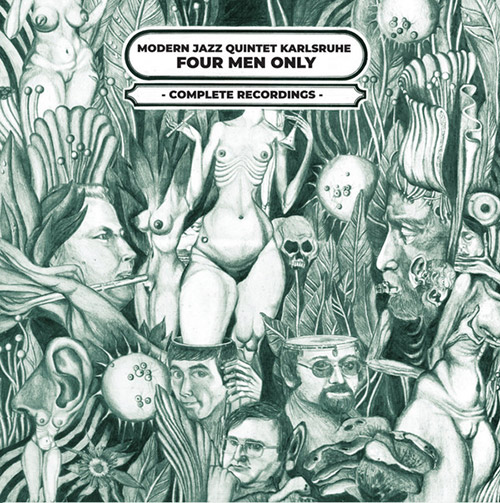



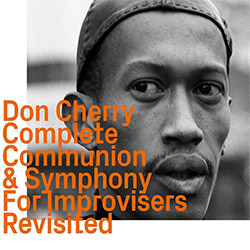
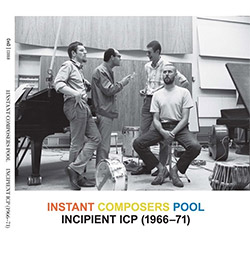
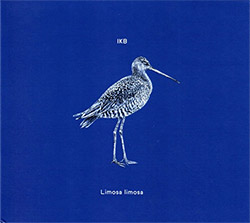
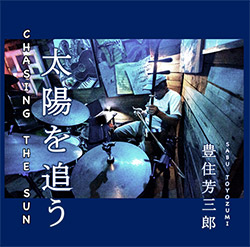

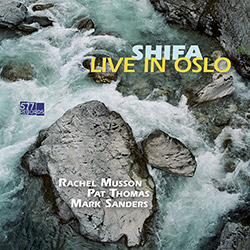
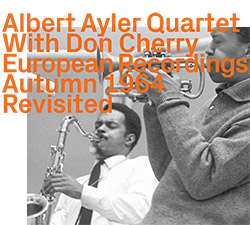
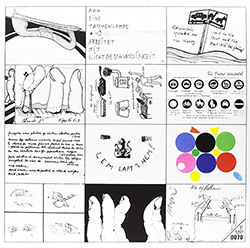
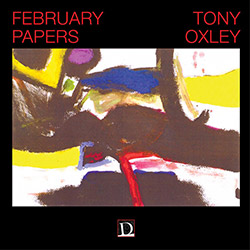
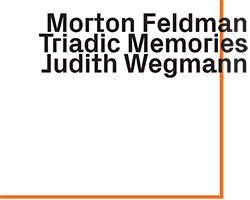
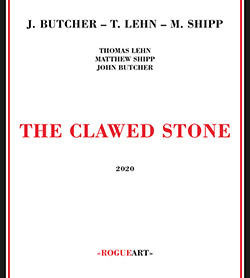

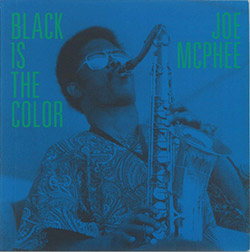
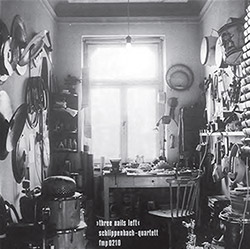
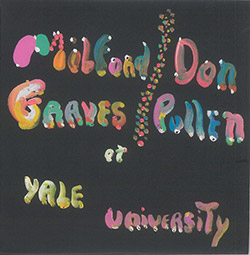
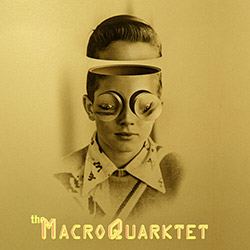


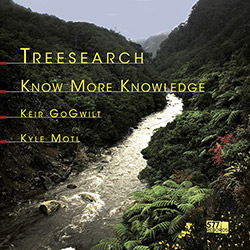


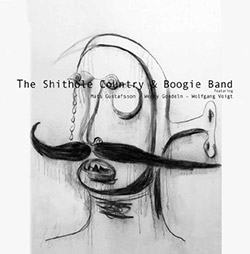
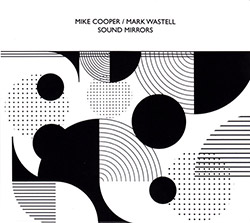




![111 (Michelle / Villamil): Live at Opus 40 [CASSETTE]](https://www.teuthida.com/productImages/misc4/35986.jpg)
![del Pino, Francisco / Charlotte Mundy: The Sea [CASSETTE]](https://www.teuthida.com/productImages/misc4/35987.jpg)

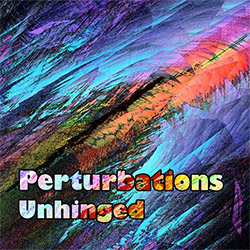

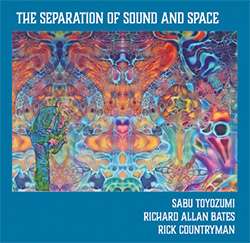


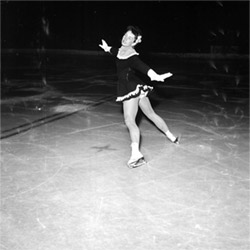
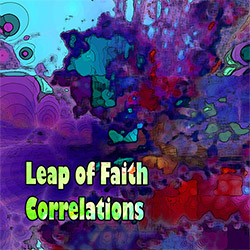

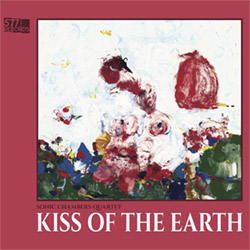

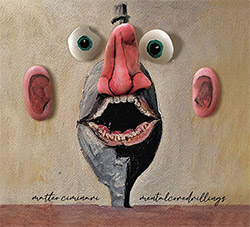
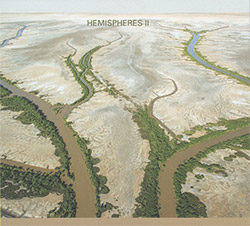
![Niblock, Phill / Anna Clementi / Thomas Stern: Zound Delta 2 [VINYL]](https://www.teuthida.com/productImages/misc4/34623.jpg)
![Yoko, Ono / The Great Learning Orchestra: Selected Recordings From Grapefruit [2 CDs]](https://www.teuthida.com/productImages/misc4/35841.jpg)

![Brotzmann, Peter / John Edwards / Steve Noble / Jason Adasiewicz: The Quartet [2 CDs]](https://www.teuthida.com/productImages/misc4/35975.jpg)
![Brotzmann, Peter / John Edwards / Steve Noble / Jason Adasiewicz: The Quartet [VINYL 2 LPs]](https://www.teuthida.com/productImages/misc4/35976.jpg)
![Thomas, Pat: The Solar Model of Ibn-Al Shatir [VINYL]](https://www.teuthida.com/productImages/misc4/36044.jpg)
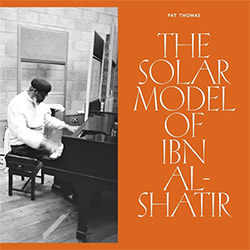



![Rodrigues, Ernesto / Nuno Torres / Guilherme Rodrigues: Whispers In The Moonlight - In Seven Movements [2CDs]](https://www.teuthida.com/productImages/misc4/35765.jpg)



![Cocks, Laura: FATHM [VINYL]](https://www.teuthida.com/productImages/misc4/36055.jpg)













![Schindler, Udo / Sandy Ewen / Damon Smith: Munich Sound Studies Vols. 4, 5 & 6 [3 CDs]](https://www.teuthida.com/productImages/misc4/35966.jpg)
![Turbulence Orchestra & Sub-Units: Smear Out the Difficulties (Double Live) [2 CDs]](https://www.teuthida.com/productImages/misc4/36048.jpg)

![Myers, David Lee : Tin Drop Tear [BOOK w/ DOWNLOAD]](https://www.teuthida.com/productImages/misc4/36030.jpg)

![Ackerley / Prymek / Turner: All Hope With Sleeping Minds [CASSETTE]](https://www.teuthida.com/productImages/misc4/35950.jpg)








![Olencki, Weston : Pearls Ground Down To Powder [VINYL]](https://www.teuthida.com/productImages/misc4/35956.jpg)
![Myers, David Lee: Oculus [2CDs]](https://www.teuthida.com/productImages/misc4/35857.jpg)


![dustsceawung: dustsceawung [CASSETTE w/ Download]](https://www.teuthida.com/productImages/misc4/35753.jpg)




![Halls of the Machine: Atmospheres For Lovers And Sleepers [CASSETTE w/ DOWNLOAD]](https://www.teuthida.com/productImages/misc4/35806.jpg)











![Zorn, John / JACK Quartet: The Complete String Quartets [2 CDs]](https://www.teuthida.com/productImages/misc4/35609.jpg)

![Lonsdale, Eden: Dawnings [2 CDs]](https://www.teuthida.com/productImages/misc4/35480.jpg)







![Sanna, Claudio: Compositori Sardi Contemporanei II [2 CDs]](https://www.teuthida.com/productImages/misc4/35317.jpg)







![Zurria, Manuel: Fame di Vento [3 CDs]](https://www.teuthida.com/productImages/misc4/35167.jpg)

![Electric Bird Noise / Derek Roddy: 8-10-22 [CD EP]](https://www.teuthida.com/productImages/misc4/35970.jpg)








![Elephant9 : Mythical River [VINYL]](https://www.teuthida.com/productImages/misc4/34624.jpg)



![Elephant9 with Terje Rypdal: Catching Fire [VINYL 2 LPs]](https://www.teuthida.com/productImages/misc4/35355.jpg)
![Deerlady (Obomsawin, Mali / Magdalena Abrego): Greatest Hits [VINYL]](https://www.teuthida.com/productImages/misc4/34876.jpg)







![Surplus 1980: Illusion of Consistency [CD]](https://www.teuthida.com/productImages/misc4/35069.jpg)
![Staiano, Moe: Away Towards the Light [VINYL + DOWNLOAD]](https://www.teuthida.com/productImages/misc4/35037.jpg)



![Caveira (Gomes / Sousa / Abras / Ferrandini): Ficar Vivo [VINYL]](https://www.teuthida.com/productImages/misc4/34643.jpg)
![Coley, Byron: Dating Tips for Touring Bands [VINYL]](https://www.teuthida.com/productImages/misc4/17906.jpg)

![Lost Kisses: My Life is Sad & Funny [DVD]](https://www.teuthida.com/productImages/misc4/lostKissesDVD.jpg)